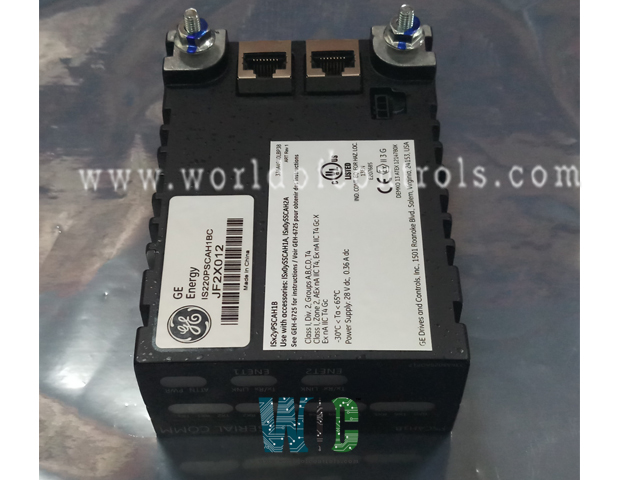
World Of Controls understands the criticality of your requirement and works towards reducing the lead time as much as possible.
IS220PSCAH1B Rev A - Serial Modbus Communication I/O Module is available in stock which ships the same day.
IS220PSCAH1B Rev A - Serial Modbus Communication I/O Module comes in UNUSED as well as REBUILT condition.
To avail our best deals for IS220PSCAH1B Rev A - Serial Modbus Communication I/O Module, contact us and we will get back to you within 24 hours.
SPECIFICATIONS:
Part Number: IS220PSCAH1B Rev A
Manufacturer: General Electric
Series: Mark VIe
Number of Channels: 6
Field Wiring: 24 AWG min
Frame rate: 32 Hz
Product Type: Serial Modbus Communication I/O Module
Mounting: DIN Rail
Operating Temperature: -30 to 70 ° C
Technology: Surface Mount
Weight: 0.8kg
Module Dimension: 8.26 cm x 4.19 cm
Availability: In Stock
Product of Origin: United States
Manual: GEI-100868A
FUNCTIONAL DESCRIPTION:
IS220PSCAH1B Rev A is a Serial Modbus Communication I/O Module manufactured and designed by General Electric as part of the Mark VIe Series used in Distributed Control Systems. The Serial Communication Input/Output (PSCA) pack facilitates the electrical interface between one or two I/O Ethernet networks and a serial communications terminal board. It includes a processor board common to all Mark VIe distributed I/O packs and a serial communications board. This board contains six serial transceiver channels, each configurable for RS-232, RS-422, or RS-485 half-duplex standards. Input to the pack is via dual RJ45 Ethernet connectors and three-pin power input, while output is through a DC-62 pin connector directly connected to the associated terminal board. One of the Ethernet ports supports Ethernet Modbus communication on Simplex Networks. Visual diagnostics are available through indicator LEDs.
INSTALLATION:
Mechanically secure the packs using the threaded inserts adjacent to the Ethernet ports. The inserts connect with a mounting bracket specific to the terminal board type. The bracket location should be adjusted such that there is no right angle force applied to the DC-62 pin connector between the pack and the terminal board. The adjustment should only be required once in the life of the product.
Plug in one or two Ethernet cables depending on the system configuration. The pack operates over either port. If dual connections are used, standard practice is to hook ENET1 to the network associated with the R controller, however, the PSCA is not sensitive to Ethernet connections and will negotiate proper operation over either port.
Apply power to the pack by plugging in the connector on the side of the pack. It is not necessary to remove power from the cable before plugging it in because the I/O pack has inherent soft-start capability that controls current inrush on power application.
FEATURES:
WOC has the largest stock of OEM Replacement parts for GE Distributed Control Systems. We can also repair your faulty boards and supply unused and rebuilt boards backed up with a warranty. Our team of experts is available round the clock to support your OEM needs. Our team of experts at WOC is happy to assist you with any of your automation requirements. For pricing and availability on parts and repairs, kindly contact our team by phone or email.
What is the Serial Modbus Communication I/O Module?
The Serial Modbus Communication I/O Module enables communication between devices using the Modbus protocol over serial interfaces like RS-232, RS-422, or RS-485. It allows seamless data exchange between devices in industrial and control systems.
What is the primary function of the Serial Modbus Communication I/O Module?
The module provides a bridge between one or two I/O Ethernet networks and serial communication devices, allowing data exchange via Modbus protocol over serial connections. It supports industrial automation systems, SCADA systems, and control networks that require serial-to-Ethernet communication.
What is the data transmission rate for the serial communication channels?
The serial communication channels support a wide range of data transmission rates, depending on the chosen standard (RS-232, RS-422, or RS-485) and the specific devices connected. Typical baud rates range from 300 bps to 115200 bps, with higher rates possible depending on the application and the distance of communication. RS-485, for example, can support long-distance communication up to 4000 feet at lower baud rates.